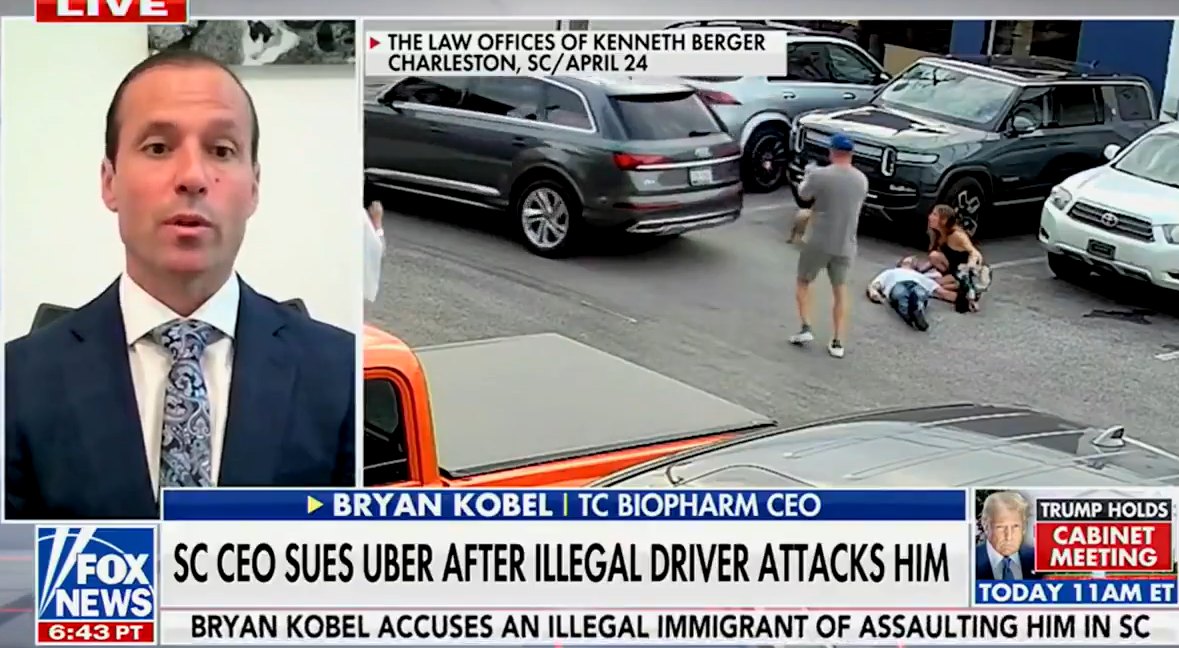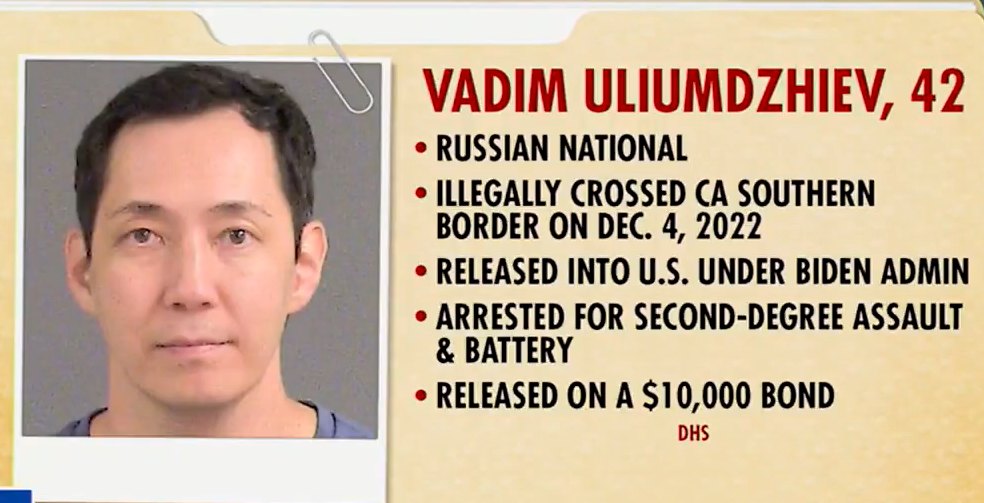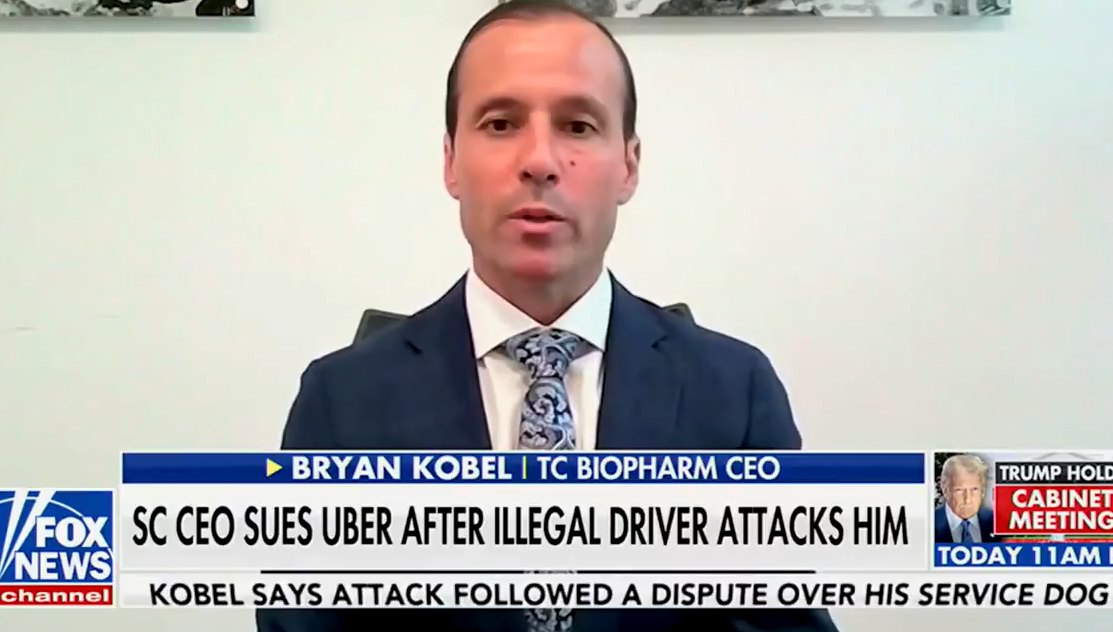Charleston, South Carolina, Aug 29, 2025 (Freedom Person)
A violent incident in Charleston, South Carolina, has sparked a broader debate about Uber driver vetting and U.S. immigration enforcement. The case involves Vadim Nikolaevich Uliumdzhiev, a 42-year-old Russian national who, according to ICE, illegally crossed the U.S. southern border on December 4, 2022, and was later released into the country.
Uliumdzhiev is accused of attacking Bryan Kobel, CEO of TC BioPharm, during an Uber ride dispute in April 2024. Kobel claims the assault left him with a brain injury and has filed a lawsuit against Uber.

The Incident: Alleged Assault in Charleston Uber Ride
According to a lawsuit reported by NY Post, the conflict began when Kobel informed the driver he would be traveling with a service animal. The driver objected, allegedly citing a policy against animals, and Kobel asked to cancel the ride. Surveillance footage reportedly shows the driver headbutting and punching Kobel, leaving him unconscious. Kobel stated that the driver picked up another Uber ride minutes later.
Charleston police charged Uliumdzhiev with second-degree assault and battery. He was released on $10,000 bond, after which ICE lodged a detainer to prevent release back into the community.
ICE confirmed that Uliumdzhiev “illegally crossed the southern border near San Ysidro, California, on December 4, 2022, and was released into the country by the Biden administration.” The detainer ensures he is not released back into American communities, highlighting a gap in immigration control and enforcement.

Uber’s Response and Corporate Accountability
Uber stated that violence has no place on its platform and emphasized compliance with all applicable laws regarding driver eligibility. Meanwhile, Bryan Kobel criticized the company’s vetting procedures, suggesting that background checks were insufficient to prevent the incident.
Together, these statements highlight ongoing questions about how rideshare companies verify driver identities and ensure passenger safety, showing a tension between corporate policy and real-world incidents.
About Bryan Kobel and TC BioPharm: CEO and Company Overview. Bryan Kobel has served as CEO of TC BioPharm since 2021 (source: TC BioPharm SEC filings). The company is a clinical-stage biotechnology firm developing gamma-delta T-cell therapies for cancer and infectious diseases. TC BioPharm operates internationally and is publicly traded, making this case relevant not only for personal safety but also for corporate accountability.

Systemic Responsibility and Safety Gaps
The Charleston incident highlights a broader, systemic issue at the intersection of corporate and government oversight. Uber has a responsibility to ensure robust verification of driver identities and eligibility, while federal authorities are tasked with preventing individuals with unresolved immigration status from operating in public-facing roles. In this case, both systems appear to have fallen short, leaving passengers vulnerable.
This problem is not isolated. Many digital platforms outsource identity verification to automated systems, and immigration enforcement faces resource limitations. The combination of these gaps creates blind spots where passenger safety can be compromised.
The case raises a critical question: how can companies and regulators balance technological convenience with real-world safety and accountability for passengers?
Key Takeaways:
- Incident in Charleston: Bryan Kobel, CEO of TC BioPharm, was allegedly assaulted by Uber driver Vadim Uliumdzhiev during a ride dispute, leaving him with a brain injury.
- Driver’s Immigration Status: Uliumdzhiev, a Russian national, illegally crossed the U.S. southern border in December 2022 and was later released into the country, according to ICE.
- Uber’s Vetting Procedures: Kobel has criticized Uber for insufficient background checks and verification of driver eligibility. Uber stated it follows all applicable laws and regulations.
- Legal Actions: Uliumdzhiev was charged with second-degree assault and battery, released on bond, and subsequently placed in ICE custody. Kobel filed a lawsuit against Uber.
- Systemic Concerns: The case highlights gaps at the intersection of corporate vetting and government immigration oversight, creating potential risks for passengers.
By Victor Green for Freedom Person



